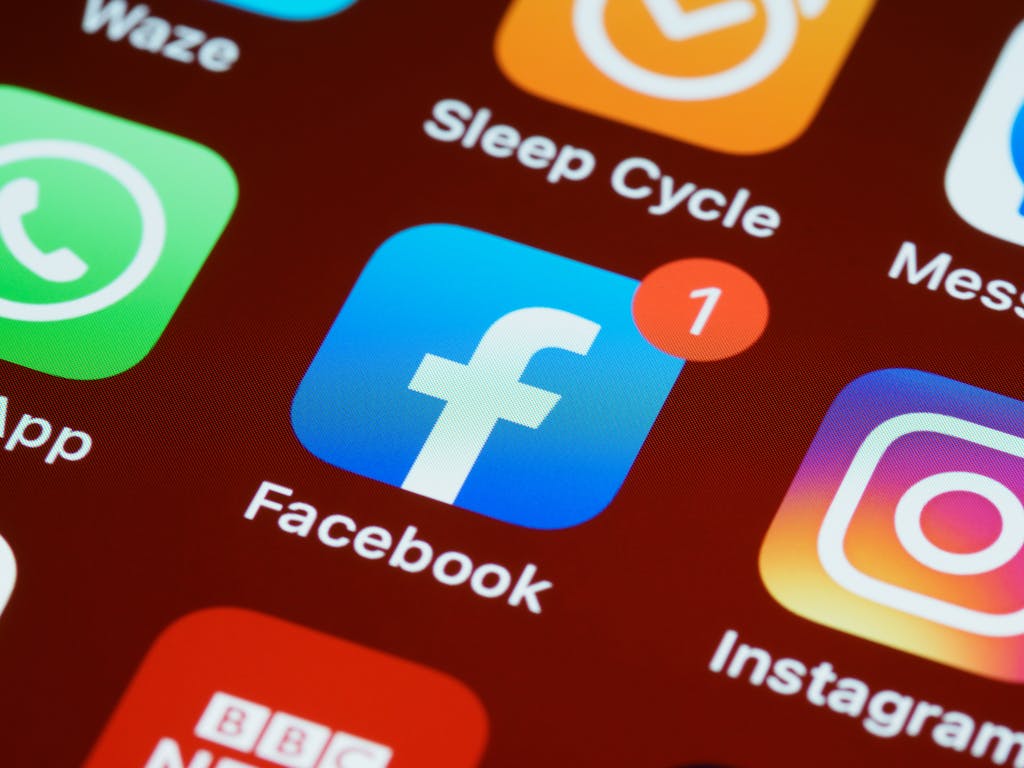Website vs. Instagram/Facebook

In today’s digital age, small businesses have many options when it comes to establishing an online presence. Social media platforms like Instagram and Facebook are powerful tools for connecting with customers, but having a website is still essential for long-term success. So, do small businesses need both, or are Instagram and Facebook enough to thrive?
Let’s explore the pros and cons of relying solely on social media versus having a dedicated website.
The Case for Social Media (Instagram & Facebook)
1. Instant Engagement with Your Audience
- Social media platforms like Instagram and Facebook allow for direct, real-time engagement. Customers can comment on your posts, send direct messages, and even engage with your stories. This immediate interaction can create a sense of community and help build trust between you and your audience.
- Plus, platforms like Instagram are great for showcasing visually appealing content, such as photos and videos of your products or services, which is a great way to connect with younger, visually-driven audiences.
2. Low Barrier to Entry
- Setting up an Instagram or Facebook page is easy and free, making it a low-cost option for businesses just starting out. All you need is a profile and a few posts to get started, and you’re ready to reach your target audience.
- Running ads on both platforms is also quite affordable and can be highly effective when you know your audience. The ability to run highly targeted ads based on demographics, interests, and behavior is a huge benefit.
3. Access to Built-in Audiences
- Both Facebook and Instagram have billions of active users, giving you access to a massive potential audience. Plus, these platforms allow you to target your audience with precision, whether by location, age, interests, or behaviors. This makes it easier to find your ideal customers and market directly to them.
4. Social Proof and Reviews
- Platforms like Facebook provide customer reviews and ratings, which can increase your business’s credibility and help potential customers make purchasing decisions.
- User-generated content (such as customer photos) on Instagram can also act as social proof, encouraging others to trust your business and buy from you.
5. No Maintenance Required
- A Facebook or Instagram page doesn’t require much maintenance compared to a website. Once your profile is set up, all you need to do is post regularly and engage with your followers. No need to worry about hosting fees, design changes, or technical issues.
Why Small Businesses Should Consider a Website
1. Credibility and Professionalism
- Having a professional website makes your business appear more established and trustworthy. While Instagram and Facebook are fantastic for connecting with people, they can sometimes appear less professional for customers who are looking for a more formal business presence.
- A custom website allows you to fully control your brand, design, and messaging without being limited by platform rules or design templates.
2. Full Control Over Content
- On Instagram and Facebook, you’re limited to the type of content you can post (images, short videos, status updates, etc.), and how it’s displayed. You also have to rely on platform algorithms, which can limit your organic reach.
- With a website, you can have unlimited space to post content, organize your offerings, and create specialized landing pages that can target specific customer segments. Whether it’s detailed service pages, price lists, or blogs, your website can cater to a wider variety of customer needs.
3. Increased Visibility via SEO
- Search Engine Optimization (SEO) is a major benefit of having a website. When customers search for your services or products online, you can rank in Google search results, making your business discoverable to people who may not have found you on social media.
- Social media doesn’t allow you to rank for specific search terms. But with a well-optimized website, you can improve your visibility, especially for local searches. For example, a potential customer searching for “best hair salon near me” will likely see your website before your Instagram page.
4. Control Over Lead Generation and Sales
- With a website, you can set up e-commerce features to sell products directly, or implement lead generation forms for services (like scheduling appointments or collecting customer inquiries).
- On social media, the focus is on engagement, not conversion. While you can post links to your website, the platform isn’t built for seamless transactions or capturing leads in a structured way.
5. Analytics and Insights
- With a website, you can use tools like Google Analytics to gather in-depth data about how visitors interact with your site. This can help you understand customer behavior, measure the effectiveness of your marketing efforts, and make informed decisions on improving your business strategy.
- While social platforms also offer basic analytics, they don’t give you the same depth of insight into your audience’s journey and behavior as a website can.
The Best of Both Worlds: Combining Social Media with a Website
Instead of choosing between a website or social media, small businesses should consider combining both for optimal results. Here’s why:
1. Social Media Drives Traffic to Your Website
- Social media should act as a marketing tool to drive people to your website. Your Instagram and Facebook pages can provide teasers of what’s available on your website (such as blog posts, product pages, or promotional offers).
- You can use your social media channels to give your followers a taste of your offerings and then encourage them to visit your website for more detailed information or to make a purchase.
2. Target Audience Segmentation
- Social media is great for awareness and engagement, while a website is excellent for conversions. By using social media to generate traffic and a website to convert leads into customers, you can maximize your marketing efforts.
- For example, Instagram can generate leads through engaging posts and stories, while your website can handle detailed product pages and checkout processes.
3. Retargeting Opportunities
- If someone visits your website through social media but doesn’t make a purchase or schedule an appointment, you can use retargeting ads on Instagram or Facebook to bring them back to your website.
- This seamless integration between your website and social media allows you to reach customers at different stages of the buying journey.
Conclusion: Website vs. Instagram/Facebook
While Instagram and Facebook are fantastic tools for small businesses to engage with their audience and drive sales, having a website is still essential. A website provides credibility, full control over content, and valuable SEO opportunities that social media cannot offer.
Instead of choosing one over the other, combining both is often the best strategy. Use social media to drive traffic, engage with customers, and build brand awareness, while relying on your website for more in-depth information, conversions, and long-term growth.
In short, a website is an investment in your business’s future, while social media is a tool for connecting with your audience today. Both work together to create a strong, well-rounded online presence that can help your small business grow and succeed.
